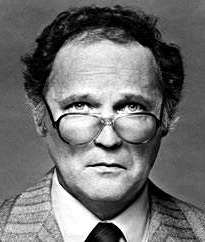by Matt Mattson
 The Dean’s List from this semester = Your fraternity’s/sorority’s new friends next semester.
The Dean’s List from this semester = Your fraternity’s/sorority’s new friends next semester.
Go.
(Example: MSU Business School Fall ’09. Fall ’10 will be out soon.)
<— That’s Dean Vernon Wormer for you youngsters.
by Nick Gilly and Vince Fabra
Social Excellence calls for you to be less of a hero, and more of a sidekick. In recruitment, a moose can attract heroes. Read on to figure out what all this means…
 In high school English most of us learned about the archetypal hero and the “hero’s journey.” The hero hears his calling, his inner impulse which drives him into the unknown. Along his journey he encounters “demons” and other obstacles that try to divert the hero from his journey, but with the aid of a helper or mentor he overcomes those obstacles and succeeds in his quest.
In high school English most of us learned about the archetypal hero and the “hero’s journey.” The hero hears his calling, his inner impulse which drives him into the unknown. Along his journey he encounters “demons” and other obstacles that try to divert the hero from his journey, but with the aid of a helper or mentor he overcomes those obstacles and succeeds in his quest.
Let’s be honest: we all want to be a hero. From early childhood playing cops and robbers we frame our lives from the point of view that we are the hero, and life is our hero’s journey. When we arrive on a college campus, we set out on our quest to find ourselves. That quest has taken us into our fraternities and sororities, and included the typical cast of helpers, demons, and obstacles along the way. We surmount odds with the ultimate goal of accomplishing great things and leaving our own legacy.
If you’re the hero, what does that make those around you? What does that make each potential new member you meet? How are you framing your conversation with him? Is he a helper being recruited into your great organization to help you on your journey? Think about this: the wo/man across the table from you is undergoing their own hero’s journey. To them, you are either a helper, a demon, or an obstacle. What will it be?
Next time you have the opportunity to have a conversation with a potential member, what if you made them the hero? What if your questions, your conversation, and your actions framed yourself as the helper instead, aiding and mentoring him on their own hero’s journey? What if instead of telling them about what your chapter does, you asked them what they would do with the chapter? What would people learn about that person through the chapter’s actions? How would that excite him/her?
Everyone wants to be the hero, so why not give the people you interact with the chance to be? How would that change the conversation?
If we strive to build successful chapters, what gives us a better chance of success than constantly recruiting heroes?
Batman had Robin. Maverick had Goose. Robin Hood had Little John. Heroes and their sidekicks pervade through stories. It is hard to find a Disney movie that doesn’t show us a hero who could not have succeeded in his quest without the aid of a helper. This is not just a fantasy construct, however; the relationship between heroes and helpers is all around us in our own lives.
 Sports fans the world over recognize Emmitt Smith as a football hero. As the NFL’s all-time leader in rushing (18,000+ yards) and touchdowns (164 TD’s), I’d argue that even non sports fans recognize his name.
Sports fans the world over recognize Emmitt Smith as a football hero. As the NFL’s all-time leader in rushing (18,000+ yards) and touchdowns (164 TD’s), I’d argue that even non sports fans recognize his name.
How about this name: Daryl Johnston? For most, “Daryl Johnston” is a name that does not ring a bell. Daryl “Moose” Johnston is a former NFL player, a Super Bowl Champ, and now a sports broadcaster. To Emmitt Smith, however, Daryl “Moose” Johnston is the most important helper of his career. See, Moose played fullback, while Emmitt Smith played running back. The primary objective of a fullback is to lead the way, clear the path and protect the running back. For 10 seasons, Moose sacrificed the ball carries, the touchdowns, the glory, and his body to ensure that Smith would be successful.
Take a look at this video, as Smith thanks Moose for being a teammate, a friend and a helper.
Then I want you to dry your eyes (if you’re anything like us) and then think of the Moose in your life. How would your life be different without their help? Who are the people that need you to be their Moose? How can we put our own hero’s journey to the side and be the helper?
How can you be the Moose?
by Vince Fabra
 With a contradiction in the title (“Significance of Insignificant”), you are either intrigued or annoyed. Either way, you are looking for answers. What I hope to do with this blog is share stories of significant results from seemingly insignificant conversations (“There is that contradiction again. WHAT DOES IT ALL MEAN?!?”).
With a contradiction in the title (“Significance of Insignificant”), you are either intrigued or annoyed. Either way, you are looking for answers. What I hope to do with this blog is share stories of significant results from seemingly insignificant conversations (“There is that contradiction again. WHAT DOES IT ALL MEAN?!?”).
Throughout my life, I have been extremely blessed with peer mentors. I valued their opinions just as much as I did their company. However, the best advice, mentorship or guidance did not come from a scheduled, sit-down sessions. The most significant conversations were actually disguised as insignificant at the time. Some were short in length, others were odd in setting, but all were authentic in nature.
As I share these important stories with you, think about these three things:
In the summer of 2004, I was in the anxious limbo between high school and college. Worried about the transition to college life, I sought the advice of a current student, Gene Gouaux. Gene and I were acquaintances, having known one another through previous high school involvement. One night, making the counselor rounds, checking to see that all the delegates were in their rooms, Gene began to assure me that I would love the University of Southern Mississippi. We launched into a deep, hour-long conversation in the bathroom of the residence hall (Remember when I said, “odd in setting?” I was preparing you for this). Our conversation developed into Gene’s keys to a successful freshman year. Gene said getting involved was the key to my success and enjoyment in college. He was right. I got involved, and I eventually succeeded Gene as Student Body President. At the time, I knew he was a great guy looking out for a nervous 17 yr old freshman. Looking back, that conversation changed my life, and he is one of my best friends and mentors.
Gene chose to be the person who had the conversation in a bathroom.
As a college freshman, I was nearly certain that I would not be a member of a Greek-letter organization. Then I met Toby Barker. Once arriving as a freshman, Toby began the friendship/recruitment process. Toby was transparent, letting me know that he was a member of a fraternity, but he never pushed the issue. After a night of hanging with Toby and his fraternity brothers, I asked Toby, “What is the difference between being your fraternity brother and being your friend?” Toby thought about it for a second and delivered the best answer he could, “Man, it is really difficult to articulate that, but it is such a different experience. You just have to trust me.” It is safe to say that answer was underwhelming, but I made a decision to trust Toby. At the time, his answer was lackluster. Looking back, it changed my life.
Toby chose to be the person who authentically requested trust.
I am proud to say that I have been on the giving end of significant advice wrapped up in an insignificant conversation. A fraternity brother of mine, Jeff Songer, was thinking about transferring schools when he was a freshman. I gave him the most basic piece of advice anyone would think to give. I said, “Jeff, just give it a chance.” That’s it. That was my plea for my friend and fraternity brother to stay at our school. Jeff never transferred, and it wasn’t until the next spring he let me know how much that piece of advice meant to him. Jeff went on to become a leader of our chapter and a huge fan of our institution. At the time, I was just being supportive. Looking back, I said just what he needed to hear. That seemingly insignificant sentence changed his life.
I chose to be the person who vulnerably asked my friend to stay.
Conversations and stories like these exist a hundred times over. For example, a former National Council President of my fraternity says his Significant, Insignificant conversation happened when his future big brother in the fraternity invited him on an errand for a new toothbrush. These opportunities exist every day. When you wake up in the morning, are you thinking about changing someone’s life? No. You are thinking about the classes you have to attend, the work you have to do, the meeting you have to make. But what about the things that are not on your daily schedule? Insignificant conversations that offer support or even toothbrush shopping – Those are chances to build relationships, make memories and change lives. I sincerely urge you to be open to these insignificant conversations. Their significance can surprise you.
Choose to be the person who goes toothbrush shopping.
Remember the importance of every conversation – seemingly significant or not. Social Excellence blossoms through momentary choices, being present and engaged at all times, and remembering that the big moments in life aren’t always planned, but almost always happen with others.
If your life has been touched by an insignificant (at least seemingly insignificant) conversation, I encourage you to reach out to that person and thank them for the impact they have made in your life. They may not know how significant they are.
